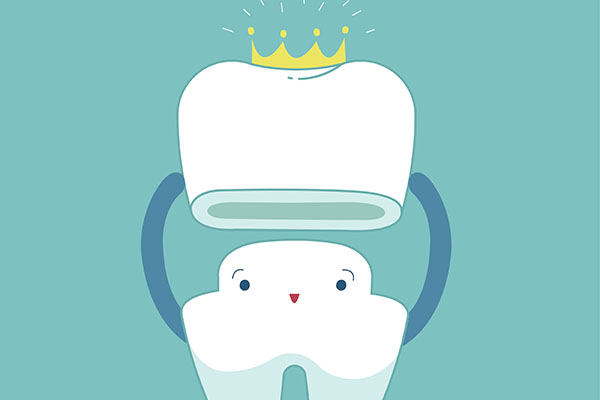 The time and effort that go into fitting a dental crown suggest a permanent restoration. Maybe it is the fact that installing a dental crown often requires multiple dentist visits. It could be the permanence that comes with the removal of enamel before the placement of a crown. Dental crowns that sit on dental implants also seem permanent.
The time and effort that go into fitting a dental crown suggest a permanent restoration. Maybe it is the fact that installing a dental crown often requires multiple dentist visits. It could be the permanence that comes with the removal of enamel before the placement of a crown. Dental crowns that sit on dental implants also seem permanent.
This raises the question: are dental crowns supposed to be permanent or not? Also, how often do dentists end up replacing their patients’ dental caps?
The dental crown: A brief explainer
A dental crown is a prosthetic that looks like the visible part of a tooth, hence its name. Dental caps are hollow on the inside, which allows them to act as a sheath for the underlying tooth. A dentist will make a mold of their patient’s tooth and use the impression as a blueprint for the dental cap.
The end product is a custom restoration with a hollow space that is a perfect fit for the tooth it sheaths. Some dentists have in-office milling machines that can fabricate same-day crowns. Many more dentists send impressions of their patient's teeth to dental labs. These labs create the crowns by hand or machine. The dental lab option requires a patient to make at least two visits to the dentist.
Does the effort it takes to get a dental crown pay off in terms of durability? A dental cap can last anywhere from fifteen years to a lifetime. However, there are cases where a dental crown lasts only a few years. Here is what determines how long a crown remains in perfect condition:
1. The type of crown
The material that goes into the making of a crown informs how long the crown lasts. Crowns made of composite resin are affordable, but there are limitations to their toughness and lifespan. A porcelain dental cap can last just about fifteen years. A gold crown can last a lifetime under the right circumstances.
2. The oral health and oral habits of the wearer
Dental crowns form protective barriers against injury and infection, but only to a degree. Take the example of a patient that experiences a failed root canal. A dentist will need to remove the patient’s crown to treat the problem tooth. The dentist may reuse the crown, or they may need to place a new crown.
3. Injury and breakage
A blow to the mouth can damage the crown as well as the tooth it sits on. Extensive damage to the structure of the crown will mean that the patient gets a new crown.
4. Changes in the mouth due to aging
Age changes the structures that anchor the natural teeth. As an example, gum recession can change the fit of a dental crown. A dentist would advise a patient who experiences this type of change to get a new crown.
Reach out if your smile could use a boost
Our practice offers preventative and restorative oral healthcare to meet all your needs. Get in touch with us to schedule a visit with our dentist. They will use their knowledge and experience to restore your smile in a way that works for you. A talk with our dentist will help you figure out if a dental crown is the way to give your smile the touchup it needs.
Request an appointment or call Visalia Care Dental at 559-975-1213 for an appointment in our Visalia office.
Related Posts
After tooth decay or oral health concerns develop, prompt and effective treatment from the dentist is often required. A dental crown is one of the main treatment options dentists recommend to treat a range of oral health and cosmetic issues. A dental crown can improve a tooth's size, shape, and function and last for over…
A tooth with significant damage will need a dental crown or cap. This restoration can restore the form and function of your tooth. Getting a large filling or a root canal will need a cap to protect and strengthen the tooth. If you want to know how a dentist will use a dental crown to…
A dental crown can save a tooth that is in danger of extraction. Dental crowns serve a dual purpose. They reinforce the tooth structure and improve the appearance of the smile at the same time. This means that a dentist could recommend a crown as a treatment for tooth decay or injury. A cosmetic dentist…
